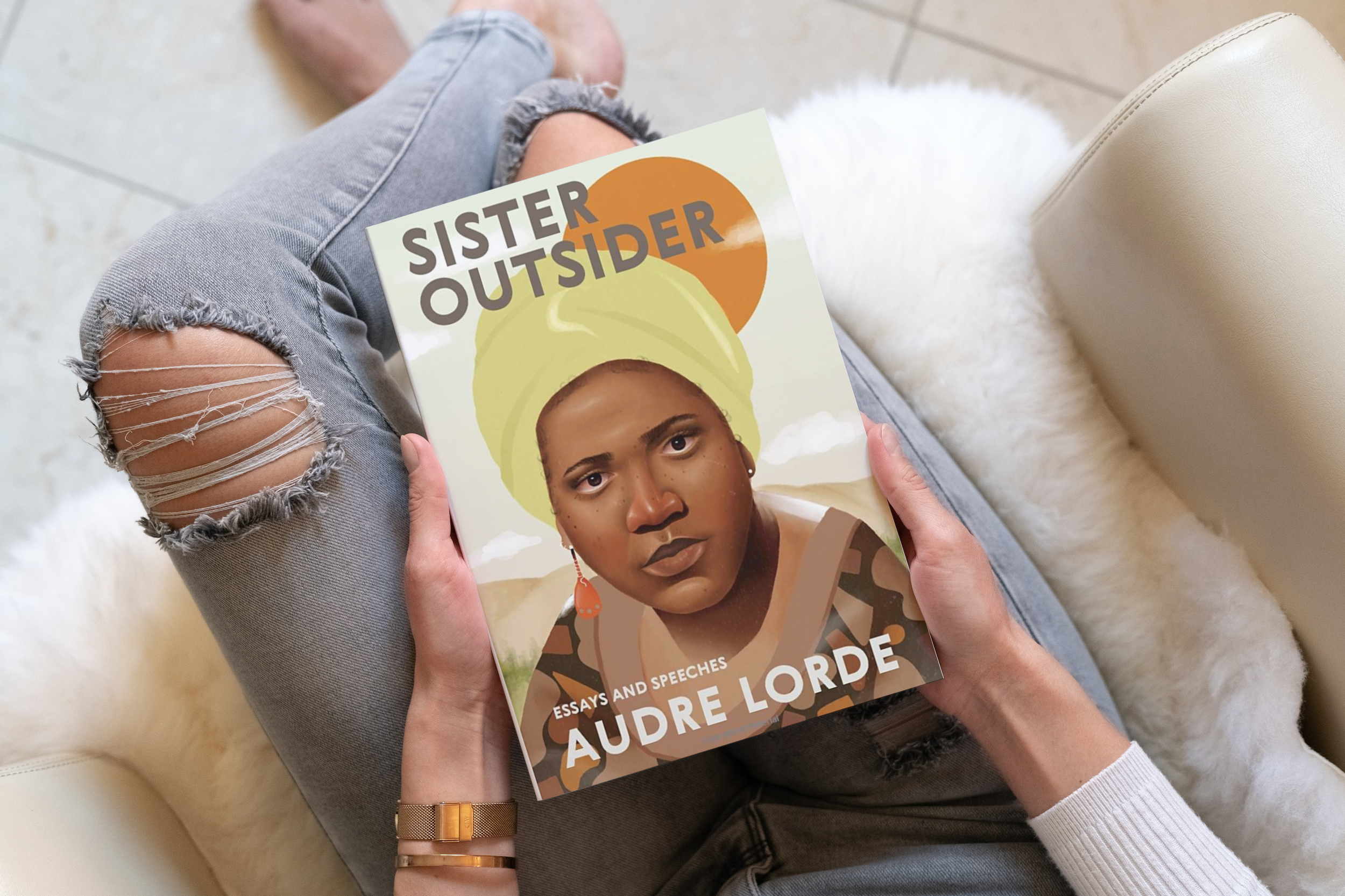The novels and essays that shaped our understanding of human rights.
Throughout US history, protest against injustice has driven citizens to develop a social consciousness about the realities of their country. Protest has become a tradition for an American people empowered by democracy. Protests against US systems and rules range from wide and broad dissent – usually targeting the government, people in power, unfair laws, and injustice – to narrow and timely dissent, targeting war, the cruelties of industrialization, homophobia, racism, and misogyny.
The many models of protest, political, artistic, literary, etc., all empower groups whose voices beg to be heard and whose voices can create structural change in society and in the reader. Of these, literary protest may be the most multidimensional in that authors can outline and explore structures of oppression, and the government and policies that uphold this structure, over hundreds of pages. Literary protest is variable, timely, and necessary; it puts the voice of the educated, intelligent, and thoughtful at the forefront of dissent.
Here are 9 must-read pieces of US protest literature:
1. “Resistance to Civil Government” or “On the Duty of Civil Disobedience” by Henry David Thoreau (1849)
In Thoreau’s “Resistance to Civil Government,” the transcendentalist author explains his intentional and political refusal to pay taxes with a critique of the American government. The essay highlights his opposition to the American government’s invasion and occupation of Mexico during the Mexican-American War and the continuing injustice of slavery; in these conditions, Thoreau argues, injustice reigns in the American government, so citizens may choose to disobey laws that support these injustices. This abolitionist and anti-imperialist essay argues for the American right of revolution.
2. Narrative of the Life of Frederick Douglass, An American Slave
Douglass’ Narrative of the Life of Frederick Douglass, An American Slave recounts his memories, thoughts, and experiences as a slave and, later, an escaped fugitive. This pre-Civil War autobiography accurately depicts Douglass’ experiences from his early years as a slave in Maryland to his status as de facto free man. The book is filled to the brim with abolitionist sentiment and a strong indictment of slavery. It is also Frederick Douglass’ best-selling fugitive slave narrative, having sold 5000 copies within four months of the first printing.
3. “An Indian’s Looking-Glass for the White Man”
Pequot William Apess, one of the most impactful Native American protest writers, embodies resistance in his essay, “An Indian’s Looking-Glass for the White Man.” Apess challenges the reigning notions of white superiority with his prose, the system of slavery promoted by whites, and the forceful imposition of European American culture and religion on native peoples whose civilizations are as significant as the white Americans’ own. This protest writer challenges the dominant systems by discussing such examples of white brutality against Native Americans as the Indian Removal Act of 1830, which granted white Americans permission to commit violence against the Indigenous and to remove them from their ancestral land.
Judith Sargent Murray’s many works can be found in the Selected Writings of Judith Sargent Murray. Amazon.
4. “On the Equality of the Sexes” by Judith Sargent Murray (1790)
Murray’s feminist essay, “On the Equality of the Sexes” precedes even Mary Wollstonecraft’s Vindication of the Rights of Women by a year, but unjustly is by far the lesser known of the two feminist pieces. Regardless, the pseudonymously published essay promotes the education of women using a multitude of feminist arguments. Murray discusses and refutes the stereotypes of women as gossipers and fashion-obsessed fools, highlights her hatred of the prevailing notion that women should be subservient to men and be denied education, and promotes the somewhat nationalist idea that both men and women should be educated to advance the country, a concept that would later be called Republican Motherhood.
5. The Jungle by Upton Sinclair (1
Sinclair’s novel The Jungle protests the cruelties and the corruption of 20th century US industrialization. This expose of the Chicago meatpacking industry was part of a wave of similar exposes written by muckrakers – progressive American writers who exposed the harsh realities of industrialization – in the early 20th century. Although the novel tells the story of fictional Lithuanian immigrant Jurgis Rudkus’s experience of factory life, there is much truth to the narrative because Sinclair wrote the novel after spending much time undercover in various Chicago meatpacking plants. The description of falling wages, workplace injuries, food contamination, and disease significantly impacted the image of factory jobs at this time and forced the government to implement federal food safety laws.
6. Sister Outsider: Essays and Speeches
Sister Outsider: Essays and Speeches compiles some of Audre Lorde’s most influential works that confront racism, sexism, homophobia, and classicism into a single book. Lorde addresses a multitude of systems of oppression: in her most famous essay “The Master’s Tools Will Never Dismantle the Master’s House,” Lorde promotes the idea that the tools built by the system of oppression will never defeat that same system of oppression. In “Man Child: A Black Lesbian’s Feminist Response,” Lorde recounts her experience of raising both a son and a daughter while critiquing the toxic masculinity that society demands of her son. Echoing themes include critiques of black men’s treatment of black women and the idea that the oppressed shouldn’t teach their oppressors about the latter’s mistakes.
American journalist Frances FitzGerald’s Fire in the Lake.
7. Fire in the Lake by Frances
FitzGerald’s Fire in the Lake, a nonfiction history of Vietnam and the Vietnam War, boasts the Pulitzer Prize for General Nonfiction, the Bancroft Prize, and the National Book Award for Contemporary Affairs. The multi-award-winning book was crafted by FitzGerald after years of travel and research into Vietnamese culture. In the book’s pages, FitzGerald analyzes the downfalls of American interventionism in Vietnam, America’s supposed promise to develop South Vietnam, and the many adverse effects – such as the displacement of villagers – of keeping American arms in Vietnam. Overall, the book highlights the ignorance of the US government and society through the lens of a cultural intellectual at a time when the Vietnam War was still ongoing.
8. The Grapes of Wrath by John Steinbe
Perhaps Steinbeck’s most famous fiction masterpiece, The Grapes of Wrath, narrates the story of migrant farm workers suffering from the Great Depression. In the narrative, the Joad family of farmers loses their livelihood in the Oklahoma Dust Bowl and must trek to find work elsewhere. The Nobel Prize-winning novel demonstrates the ways in which farm workers were exploited by organized businesses in the 1930s and generates sympathy for the plight of these individuals as they fight through economic hardship. In fact, Steinbeck, to gain a clearer picture of these hardships, visited migrant camps teeming with residents and saw firsthand the harsh living conditions of families similar to the fictional Joads.
9. The Thing Around Your Neck by Chi
This collection of short stories is revolutionary in its focus on mental health, anxiety, and grief, especially as they pertain to immigrant culture. Grief appears in the short story “American Embassy” when a woman tries to apply for asylum but cannot bear to describe her son’s murder for the sake of a visa. Anxiety and loneliness appear in the title story “The Thing Around Your Neck” as the narrator Akunna’s sexual assault makes her feel lonelier than ever after her move to America. In all of Adichie’s stories, the Nigerian author writes eloquently about her own intercultural journey through her fictional characters and narratives.
Su Ertekin-Taner
Su is a first year student at Columbia University majoring in creative writing. Her love for the power of words and her connection to her Turkish roots spills into her satire, flash fiction, and journalistic pieces among other genres. Su hopes to continue writing fearless journalism, untold stories, and prose inspired by her surroundings.



